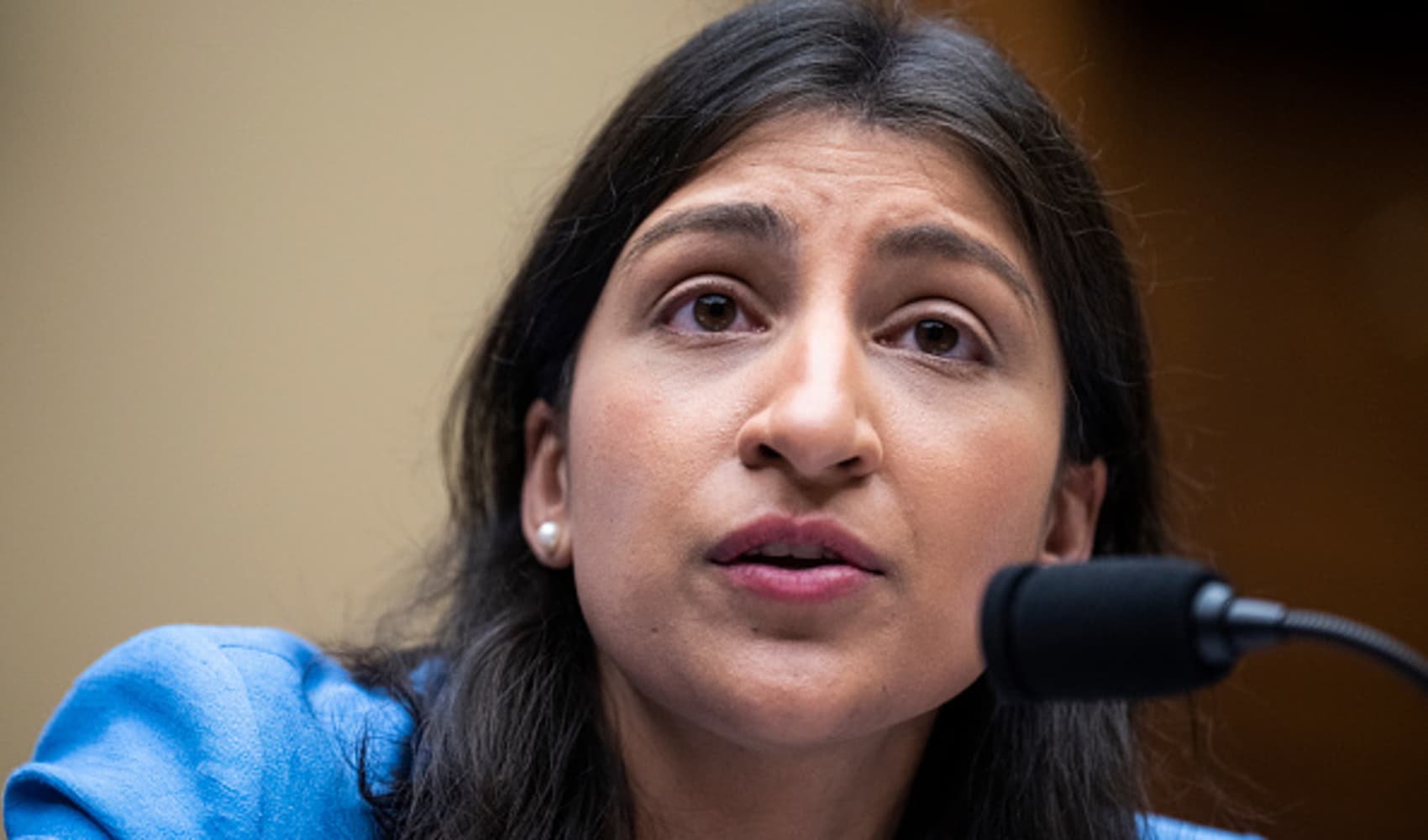
- The Colorado Division of Banking on Tuesday objected to the Federal Reserve Bank of Kansas City's description of how it came to classify fintech company Reserve Trust as a bank.
- The dispute is another headache for Sarah Bloom Raskin, one of President Biden's Fed nominees, and Democrats hoping to confirm her to be one of the world's most powerful bank regulators.
- A former Fed and Treasury official, Raskin joined the company's board in May 2017 as it worked to retool its application for a Fed master account.
- Republicans say Raskin called the KC Fed to lobby on behalf of Reserve Trust, which was approved for a master account in 2018.
The Colorado Division of Banking on Tuesday objected to the Federal Reserve Bank of Kansas City's description of how it came to classify fintech company Reserve Trust as a bank.
The dispute represents another headache for President Joe Biden Fed nominee Sarah Bloom Raskin and Democrats hoping to confirm her to be one of the most powerful bank regulators in the world.
The Colorado agency told CNBC that a statement issued by the Kansas City Fed last week "misrepresented" its role in Reserve Trust's quest in 2017 to eventually acquire a "master account" at the central bank.
Get a weekly recap of the latest San Francisco Bay Area housing news. Sign up for NBC Bay Area’s Housing Deconstructed newsletter.
Raskin joined Reserve Trust's board in May 2017, months after leaving her post as the Treasury Department's deputy secretary, as it worked to retool its application for a Fed master account. The firm was approved for a master account in 2018. Raskin left Reserve Trust in 2019.
The Colorado regulator disputed a portion of the Kansas City Fed's statement from Feb. 7 that states that, after its first failed request for access to a master account, Reserve Trust "changed its business model and the Colorado Division of Banking reinterpreted the state's law in a manner that meant RTC met the definition of a depository institution."
Asked about that characterization and whether its reinterpretation of state law allowed other fintech firms to qualify as banks, Colorado's banking regulator fired back.
Money Report
"We consider the statement that the division 'reinterpreted' state law as a misrepresentation of our practice," Rebecca Laurie, a representative for the Colorado Division of Banking, said in an email. "The analysis of the laws is consistent, while what can change outcomes to our analysis are the facts provided by the entity."
"Further, the Division of Banking has not, nor has the authority, to change, modify or reinterpret any law without engaging in the rulemaking process," she added.
The Kansas City Fed declined to comment when asked about the Colorado Division's remarks.
Republicans say Raskin's communications with the Kansas City Fed and its president, Esther George, are a flagrant example of the "revolving door" between government and corporate interest. Raskin was a member of the Fed board of governors from 2010 to 2014.
Senate Republicans, concerned about Raskin's purported efforts to leverage her prior government connections to sway the Kansas City Fed into granting Reserve Trust a master account, on Tuesday staged a boycott of the Banking Committee's vote to recommend her to the broader chamber.
Sen. Pat Toomey, a Republican from Pennsylvania, said that the move was specific to Raskin and that the GOP has no problem voting on the other pending nominations of incumbent Chair Jerome Powell, would-be Vice Chair Lael Brainard and Lisa Cook and Philip Jefferson as governors.
Amanda Thompson, a representative for Toomey, said the division's remarks support the GOP's concerns with Raskin's candidacy.
"The Kansas City Fed has claimed there were the two reasons for why it reversed its decision denying Reserve Trust access to the Fed's payment system. One reason was that the Colorado Division of Banking reinterpreted the state's law. It's deeply disturbing to learn now — from the Colorado Division of Banking itself — that this claim is false," Thompson wrote. "This may explain why the Kansas City Fed has refused to turn over requested information about Ms. Raskin's lobbying of Kansas City Fed Bank president Esther George on behalf of Reserve Trust."
"The more we learn, the more questions we have, which is exactly why Banking Republicans were right to refuse to move forward with today's vote," she added. "Until these questions have been adequately addressed, the Committee should not proceed with a vote on Ms. Raskin."
Republicans say that Democrats could move forward with the other four nominations if they agree to hold Raskin back for further questioning.
The Republican boycott forced Banking Committee Chairman Sen. Sherrod Brown, D-Ohio, to delay the formal vote on Raskin, as well as four other Fed nominees including incumbent Powell.
"Today, Ranking Member Toomey chose to abdicate his duty to the American people and put our economic recovery at risk, instead of doing his job and showing up to vote on Ms. Bloom Raskin, Dr. Cook, Dr. Jefferson, Gov. Brainard, and Chair Powell's nominations," Brown said in a statement earlier Tuesday.
Brown's office declined to comment for this story.
While the division's beef may be minor seeing as the regulator ultimately approved Reserve Trust's status as a depository institution, it nonetheless undermines the potency of a document Democrats and the White House have used for over a week to tout Raskin's ethics record.
Jen Psaki, the White House press secretary, alluded to the Kansas City Fed's statement earlier on Tuesday while defending Raskin's candidacy.
"Sarah Bloom Raskin is one of the most qualified individuals to ever be nominated to the Federal Reserve and has made the strongest ethics commitments in the history of the Fed," Psaki said. "Even after she's made extensive disclosures to the Banking Committee, Senator Toomey has continued to promote false allegations that have already been shot down by ethics experts, the Kansas City Fed, the founder of Reserve Trust, Sarah Bloom Raskin herself, and more."
The objection may also focus attention on the first half of the Kansas City Fed's statement from Feb. 7, which claims that Reserve Trust changed its business model before Colorado classified it as a bank.
Reserve Trust did not respond to CNBC's request for comment. CNBC has also reached out to the White House.






